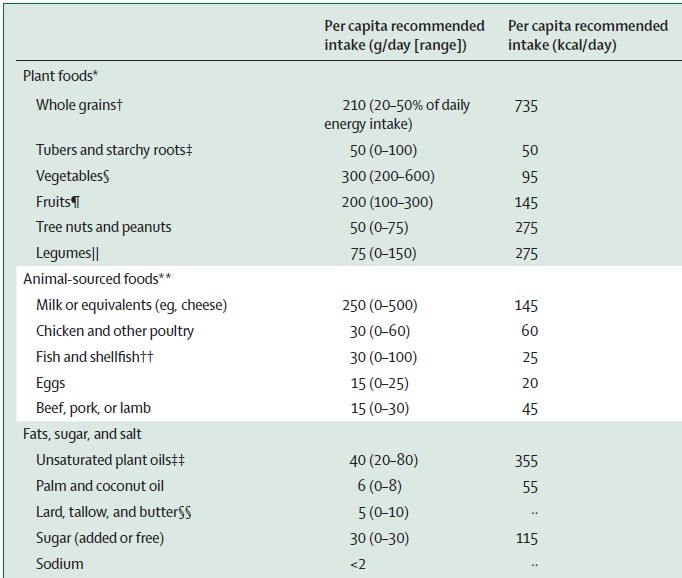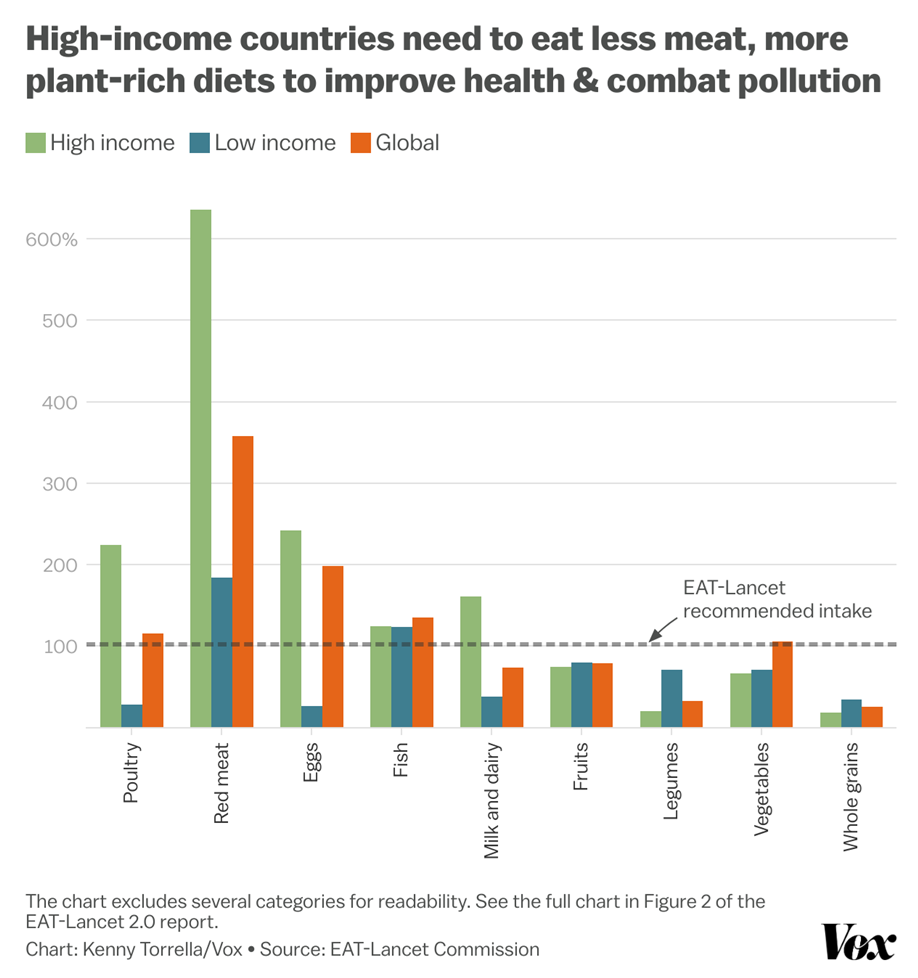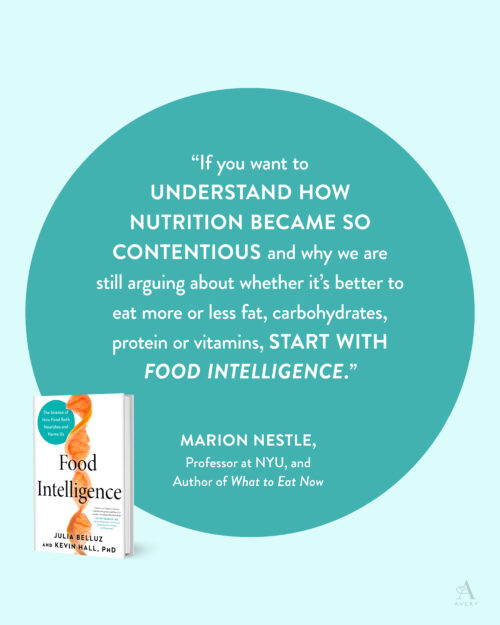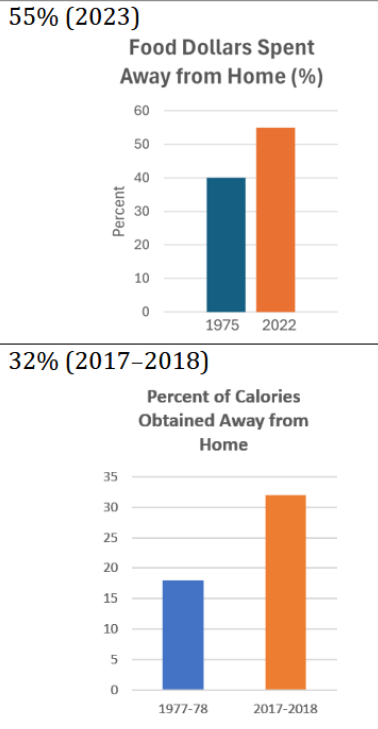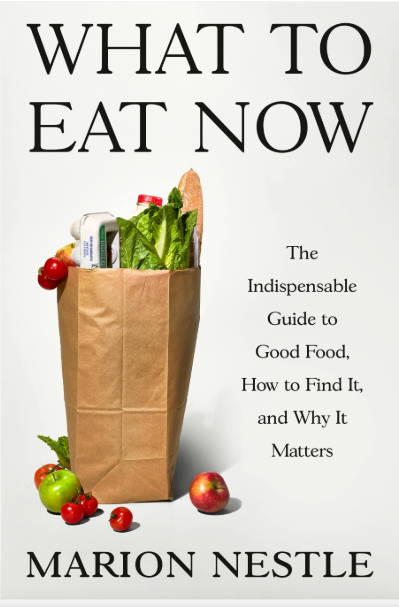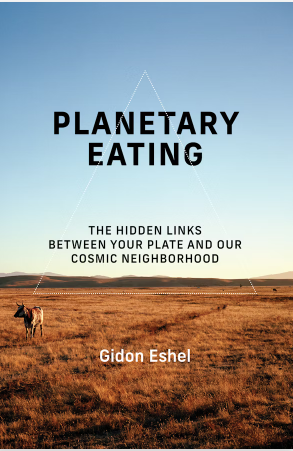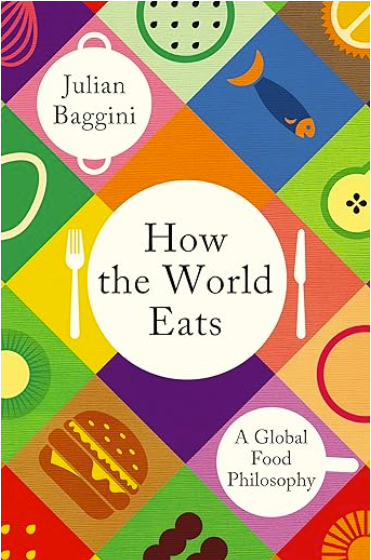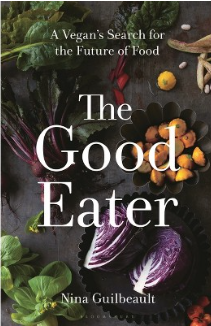Two previous short-term studies demonstrated that if you eat a diet based largely on ultra-processed foods, you are likely to consume far more calories than you would eating less processed diets–and not notice that you are overeating.
The big question: why.
Study #1: Hall K, et al. Ultra-Processed Diets Cause Excess Calorie Intake and Weight Gain: An Inpatient Randomized Controlled Trial of Ad Libitum Food Intake . Cell Metabolism 2019; 30:67–77.
When study subjects ate the ultra-processed diet, they consumed 500 calories a day more than when they were eating the unprocessed diet. This is a staggering difference. They seemed to eat the ultra-processed diet faster.
Study #2: Hamano S, Sawada M, Aihara M, Sakurai Y, Sekine R, Usami S, Kubota N, Yamauchi T. Ultra-processed foods cause weight gain and increased energy intake associated with reduced chewing frequency: A randomized, open-label, crossover study. Diabetes Obes Metab. 2024 Nov;26(11):5431-5443. doi: 10.1111/dom.15922.
These investigators reported a difference of 813 calories. They attributed it to less chewing.
Study #3 (as yet unpublished): Its results appeared as a Tweet (X) from Dr. Hall describing a presentation he gave at a meeting in London (Apparently, X is where science gets discussed these days). The recording of the entire meeting is now available. Dr Hall’s presentation begins at minute 38.
The latest result: a difference of 1000 calories a day!
Dr. Hall was kind enough to send me the slides from his presentation.
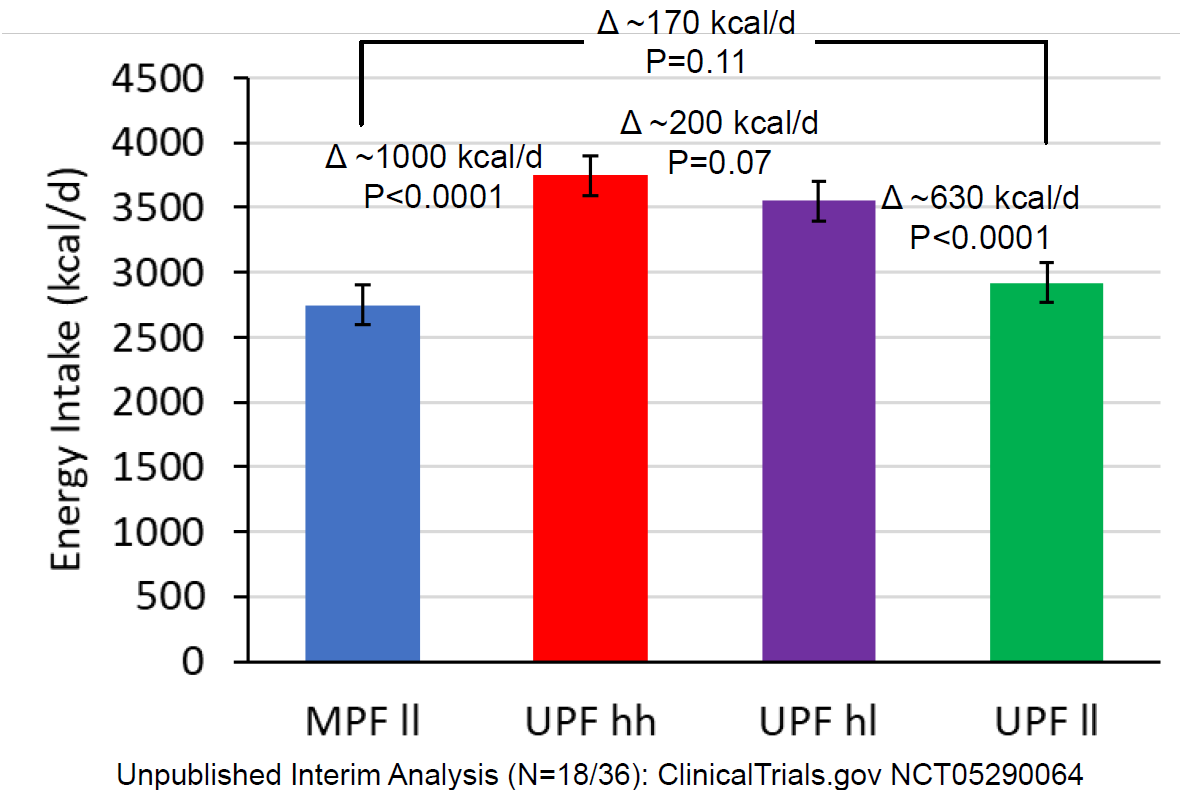
My translation:
- Blue bar: Minimally processed diet, low in energy density (calories per gram) and low in irresistably delicious (hyper-palatable) foods.
- Red bar: Ultra-processed diet high in energy density and high in hyper-palatable foods.
The big result: Difference between blue (unprocessed) and red (ultra-processed): 1000 calories a day.
- Purple bar: Ultra-processed high in energy density, low in hyper-palatable.
- Green bar: Ultra-processed low in energy density, low in hyper-palatable.
Difference between purple (high, low) and red: 200 calories a day.
Difference between green (low, low) and red: 630 calories a day.
Participants reported no differences in appetite or pleasantness of the meals on the various diets. There also were no observable differences in eating rate.
Obviously, participants who ate more calories gained more weight.
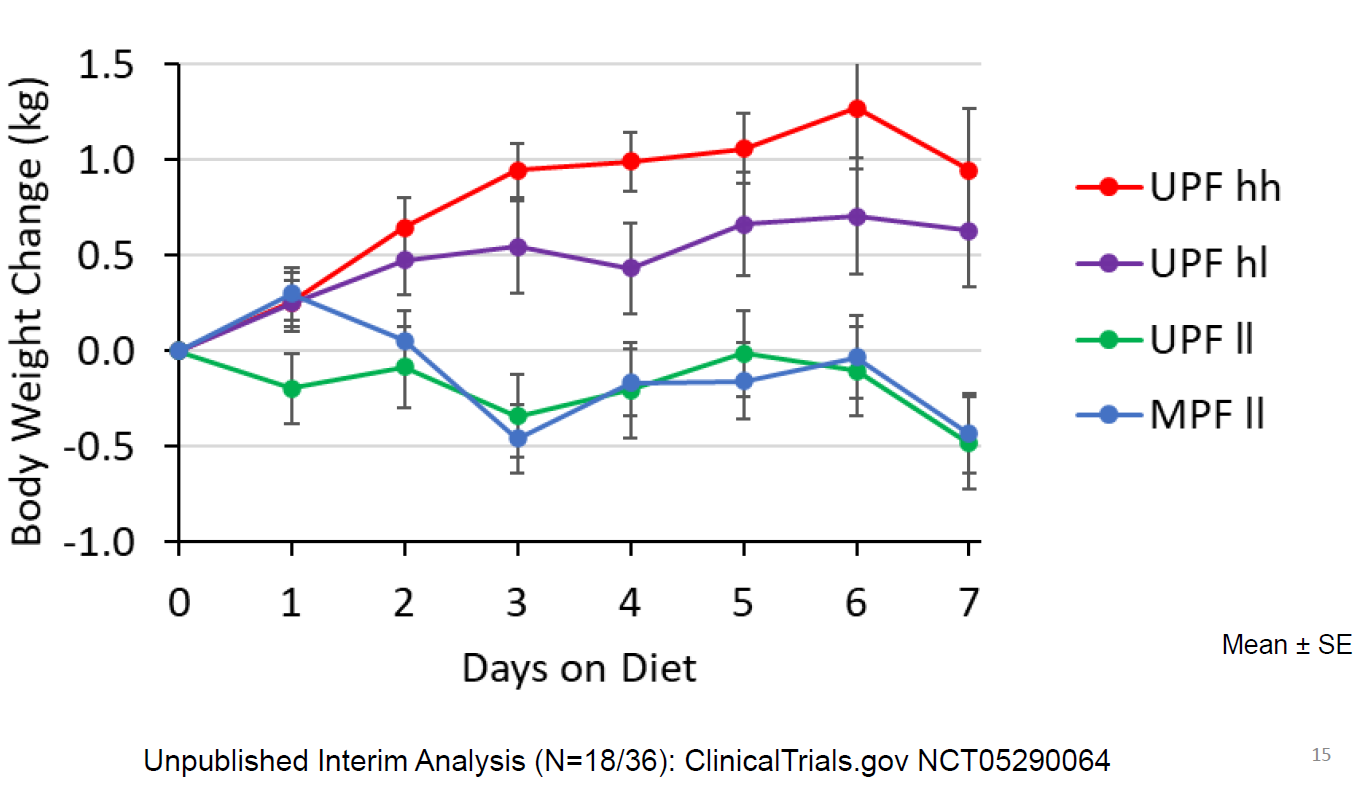
Comment
My summary: We love and cannot stop eating yummy high-calorie foods.
All of this reminds me of the work of Barbara Rolls, who for years has argued for diets low in energy density, and whose low-energy-dense Volumetrics diet is consistently ranked at the top of diet plans.
It’s great to see all this research coming together. Whatever the reasons—energy density, hyper-palatability, less chewing—the take-home-message seems utterly obvious: reduce intake of ultra-processed foods.
As Jerry Mande summarized the significance of this study, also in a Tweet (X) :
BREAKING..@KevinH_PhD presents preliminary data from long awaited (6yrs!) follow-up study. Confirm initial findings. Energy dense, hyper-palatable UPF foods result in 1000 kcal/day greater intake than minimally processed food. Time to regulate UPF #MAHA
Indeed, yes.

